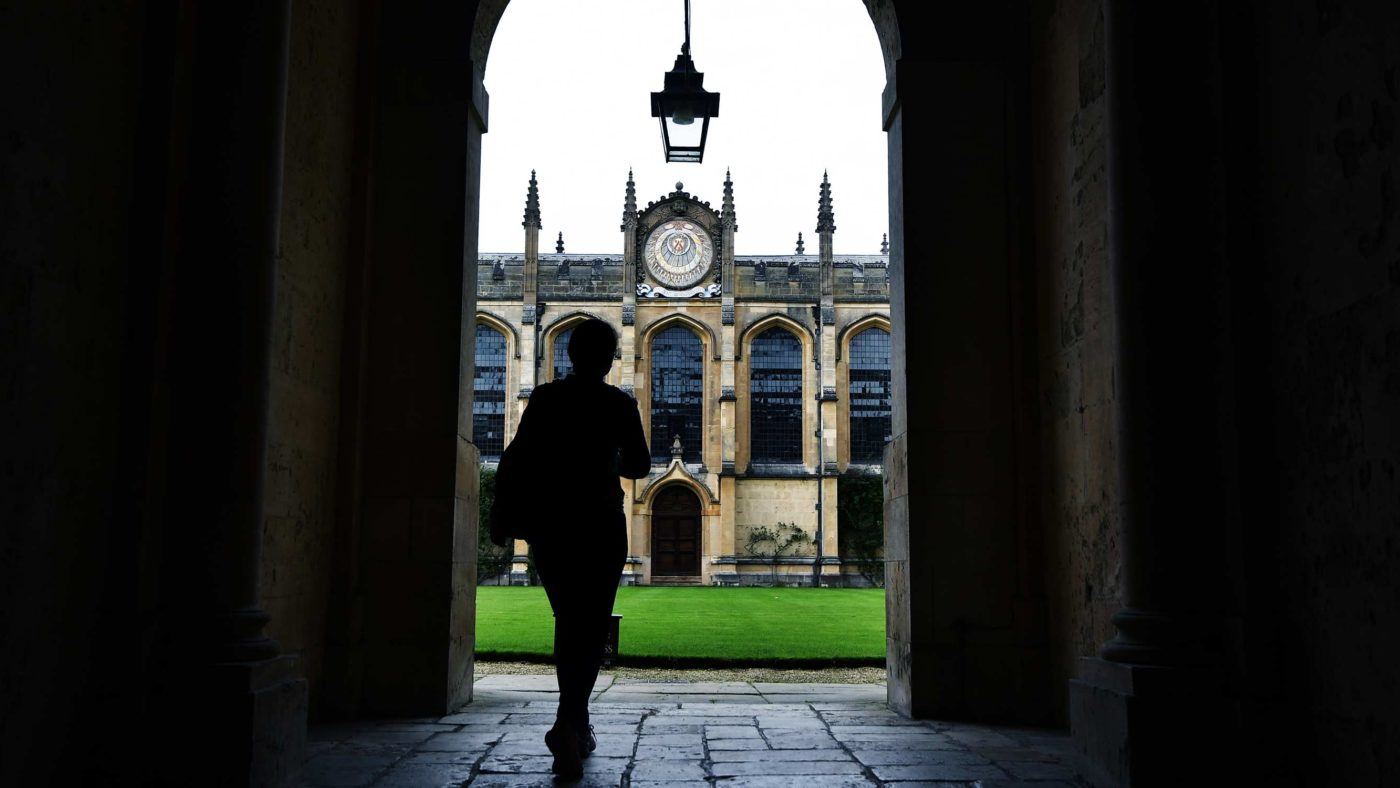Lefties dominate academia. As far as headlines go, that is “Dog bites man” stuff. Nonetheless, an Adam Smith Institute paper reporting this finding has caused quite a stir. The report’s author, Noah Carl, looked at surveys of academic opinion from the 1960s and 1980s and compared them to a recent Times Higher Education survey which found that left-liberals make up 75 per cent of academics, while conservatives make up only 12 per cent.
Although it’s possible to nitpick about the methodology of the survey, and indeed Noah himself presents the data with caveats attached, we should be confident about the finding. Indeed, it’s replicating what we’ve found in a number of academic studies and surveys.
Across the pond, the Higher Education Research Institute at UCLA has conducted surveys of undergraduate lecturers every three years over the past three decades. They found a significant shift towards members of teaching faculties identifying themselves as far-left or liberal and a similar fall in the number identifying as conservative. Liberals now outnumber conservatives at close to five to one on American campuses.
Another study from the US, by Bill Von Hippel and David Buss, surveyed the Society for Personality and Social Psychology and got over a third of its members to respond. Moral psychologist Jonathan Haidt analysed the data and found that just 1.2 per cent voted for Mitt Romney, only 2.5 per cent identified as right-of-centre, and just 0.3 per cent held right-of-centre views on nine prominent political issues. As Haidt wittily put it, “New study indicates existence of eight conservative social psychologists”.
Again, this probably doesn’t come as a surprise to anyone reading this. But, what Noah Carl’s paper does that’s so fascinating is to look at the reason why.
If you’re a lefty-liberal reading this you might think the answer is obvious. Academics are intelligent people who study the issues carefully so it’s only natural that they would come to the “correct” left-wing opinions, right? Well not quite.
Carl compared the political views of academics to the 5 per cent of Brits who score highest on an IQ test. He found that they were actually slightly more likely to vote Tory (and slightly less likely to vote Ukip) than the population at large.
So if smart people are just as likely to be right wing as the average joe public, why are there so few in academia? Carl, himself an academic at Nuffield College, Oxford offers a few explanations.
His research suggests that the main explanation is personality. Left-wingers tend to score highly on a trait known as “openess to experience”.
Carl looked again at the political views of the brightest 5 per cent and found that those who were most “open to experience” were substantially more likely to vote for left-wing parties. Invidividuals who score highly on “openess to experience” are typically more creative and intellectually curious, as a result they are likely to be overrepresented in academia.
But, openess to experience isn’t sufficient to explain the difference. It’s probably enough to explain the academia’s left-lean in the 1960s and 1970s but not its outright dominance today.
There are a few other factors at play. People tend to prefer to work and socialise with people who have similar views and personalities. Once academia gets (accurately) stereotyped as left-wing, it starts to draw in more and more left-wing people.
Right-wingers in academia might then moderate or change their views due to a mix of concerns about funding, peer pressure or simply the desire to conform. As this process works it way through, academia moves further and further to the Left.
Why is this a problem?
As my colleague Ben Southwood says “it probably doesn’t matter if all our physicists are communists—unless they are passing nuclear secrets to foreign powers”. But there is a real problem when it comes to the social sciences.
There’s a risk that research that doesn’t fit neatly with a left-liberal worldview goes unpublished. One survey indicated that many academics would look unfavourably towards conservative academics when choosing who to hire and what research to fund.
In The Blank Slate psychologist Steven Pinker describes how research confirming left-wing political views about human nature were able to proliferate across academia and seep into the public consciousness. At the same time, researchers who highlighted the role of genetics in things such as gender, violence and intelligence were shouted down. Ideology not evidence was allowed to dominate.
Psychology is in crisis. An initative called the Reproducibility Project reran over 100 psychological experiments to see if their findings would stand up to further testing, that they weren’t flukes. Shockingly, over 60 per cent of the studies didn’t hold up. Something is seriously wrong.
Take the idea of the stereotype threat. If you tell a girl just before she takes a maths test that girls on average do worse at maths, then she’ll do worse than she would have if you’d just kept your mouth shut. It’s easy to see how this idea would be appealing to a left-leaning social scientist. It suggests that merely by moderating our language, we can create a more gender-equal society.
It might even be the motivation behind Cardiff Metropolitan University’s Orwellian inclusive language code that discouraged phrases such as “gentlemen’s agreement” and “right-hand man”.
Stereotype threats don’t replicate well and there’s good reason to believe that the extent to which they do replicate is down to publication bias. This suggests that studies finding no effect are getting rejected or filed away. So politics could be the reason why some studies aren’t getting published.
This really matters. Ideas such as stereotype threat are taken seriously by the media and politicians. We need to get this stuff right, but we’re much less likely to get it right if academics only interact with people who see the world the way they do. Universities rightfully take gender and racial diversity seriously, perhaps it’s time they took viewpoint diversity just as seriously.


